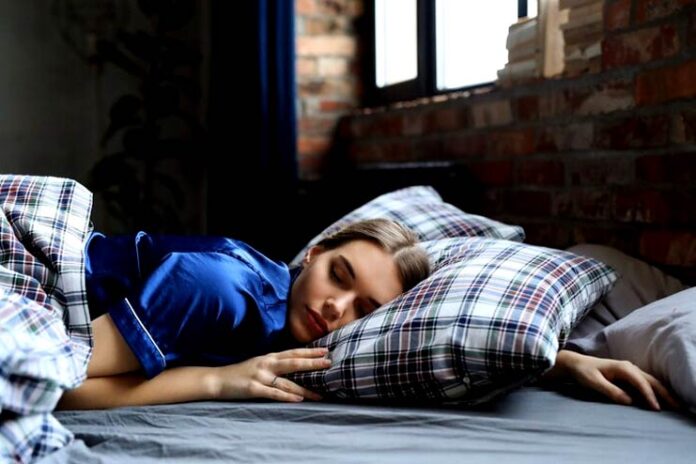Affiliate Disclaimer
Some links in this article are affiliate links. We may earn a small commission if you make a purchase through these links, at no extra cost to you. We only recommend products we find useful to our readersA restful night’s sleep is essential, but it’s sometimes overlooked in the rush of contemporary life. Let’s talk about sleep hygiene, a concept that is becoming more popular due to its significant influence on our general health. It goes beyond just getting enough sleep to include quality sleep, and sleep hygiene is the collection of behaviors and practices that support the development of a healthy sleep schedule.
Focusing on a vital element – the sleep environment — becomes essential as we delve deeper into sleep hygiene. Sleep environment is a critical factor in determining the quality of our sleep, even beyond the typical notions of a nice blanket and a comfortable mattress.
Let’s explore the subtleties of this sometimes disregarded feature, revealing the components that might turn our bedrooms into havens for peaceful, revitalizing sleep.
Understanding Sleep Hygiene
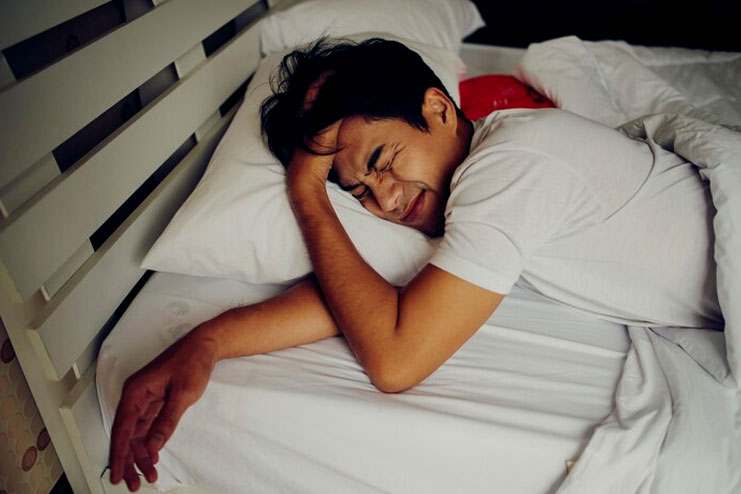

The first step in improving one’s sleep is to gain a thorough understanding of sleep hygiene, a complex idea involving several components. Fundamentally, good sleep hygiene creates a sleep-friendly atmosphere and develops routines and behaviors supporting the best possible sleep quality. “Sleep hygiene” describes wholesome routines, actions, and environmental elements that can be modified to promote restful sleep.
Bad sleep habits that have been maintained over years or even decades can be the source of some sleeping issues. A few small lifestyle and mentality changes often result in better quality sleep. Everything adds to this comprehensive method, from establishing a regular sleep schedule to making a peaceful bedtime ritual and cozy sleeping environment.
There is a strong link between optimal sleep hygiene and general health advantages. Better emotional well-being, a more robust immune system, and enhanced cognitive performance are all associated with getting enough good-quality sleep. Your health, happiness, and mental function all improve with enough sleep.
Numerous illnesses and disorders are more likely to develop in those who don’t routinely get enough good sleep. Studies indicate that insufficient sleep raises the risk of heart disease, dementia, obesity, infections, and cardiac problems. Dr. Michael Twery, an NIH sleep specialist, states that sleep impacts practically every tissue in our body. “It impacts immune function, appetite, breathing, blood pressure, growth and stress hormones, and cardiovascular health.”
Maintaining good sleep hygiene helps people perform better daily and reduces their chance of developing several health problems.
Designing the Ideal Sleep Environment


The skill of creating the ideal sleeping environment extends beyond cozy bedding. The state of our sleeping environment dramatically influences the quality of our sleep, affecting everything from the moment we fall asleep to how satisfied we are with our sleep overall. Creating the perfect sleeping environment is influenced by several elements.
A peaceful setting is very necessary for a restful night’s sleep. Research indicates that individuals sleep more soundly when their bedroom is well-suited in terms of temperature, comfort, light, noise levels, etc.
Additionally, a sleep-promoting bedroom atmosphere might enhance your waking state of consciousness, given the apparent correlation between sleep duration, quality, and other facets of human health. The best part is that designing the perfect bedroom doesn’t have to be expensive. You can improve the tranquility and fitness of your sleeping area at a reasonable price in several ways.
- Remain steady. Maintain a consistent sleep schedule and wake-up time every day, even on the weekends.
- Ensure your bedroom is peaceful, dark, well-lit, and at the ideal temperature.
- Take out all electronics from the bedroom, including computers, TVs, and smartphones.
- Steer clear of heavy meals, caffeine, and alcohol right before bed.
- Go for a workout. Engaging in some physical activity throughout the day can facilitate easier night-time sleep.
A thoughtful design of the rooms is necessary to create the ideal sleeping haven. Ensuring your bedroom is your ultimate safe area is crucial to get the most out of your sleep. A gorgeous bedroom with a calming design will have the most impact on your life of anything you own—realistic suggestions for setting up the bedroom to encourage rest and improved sleep.
- Make the area more tranquil: Your sleep will improve if your surroundings are more pleasant.
- Please get rid of clutter: Having clutter around in the bedroom is one of the things that will ruin the tranquil atmosphere, so try to get rid of it.
- Cut the lights off: During sleep, turn off all the lights in your room, not just the lamp by your bed. Turn off your computer, smartphone, and TV as well.
Enhancing Sleep Hygiene Practices
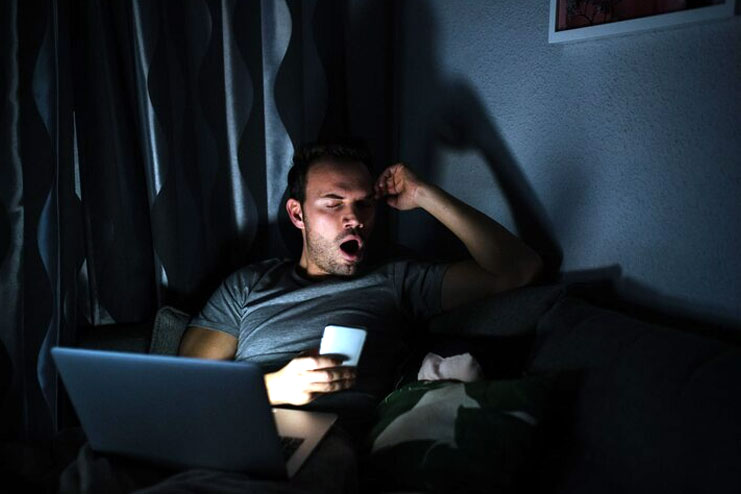

Attention needs to be paid to particular behaviors that directly impact our nocturnal rest to improve the art of sleep hygiene. Tiny changes in our routines, such as what we lay on or how much electronics we use before bed, can significantly impact the quality of our sleep. Choosing the correct mattress and bedding is essential to getting the best sleep experience.
One of the most significant purchases you can make for your house is choosing the ideal mattress because it’s essential to a restful night’s sleep. However, choosing the right mattress may seem unachievable with so many alternatives available. It may be tiresome to comb through all the sizes and characteristics, figure out how much you should spend, and navigate the vast array of materials and marketing jargon.
Most importantly, when you lie down, your spine remains properly aligned. What makes the most excellent mattress for you will depend on several factors, including your body type, sleep position, and personal preferences for materials and feel. In addition, you should think about price, practicality, longevity, and any sleep-related concerns, such as heat sensitivity and back pain.
In a time where screens rule the day, it’s critical to comprehend how technology affects sleep. According to studies, using a screen for two or more hours in the evening can significantly interfere with the melatonin surge that induces sleep. Keeping electronics in the bedroom increases the temptation to check them when you wake up at night, even if you have placed your phone or other gadgets on silent.
Try to switch off all electronics an hour or more before going to bed. Try bathing, reading a book, or engaging in other soothing activities. A tech-free area should be set up at least one hour before bed.
People can actively improve their sleep hygiene practices by selecting bedding and mattresses wisely, controlling the influence of technology, and adopting proactive measures. Even though they might not seem like much, these changes can significantly affect your general well-being and quality of sleep.
Related Article: What Sleeping Position Says About Personality? 10 Astonishing Results
Implementing Healthy Sleep Routines
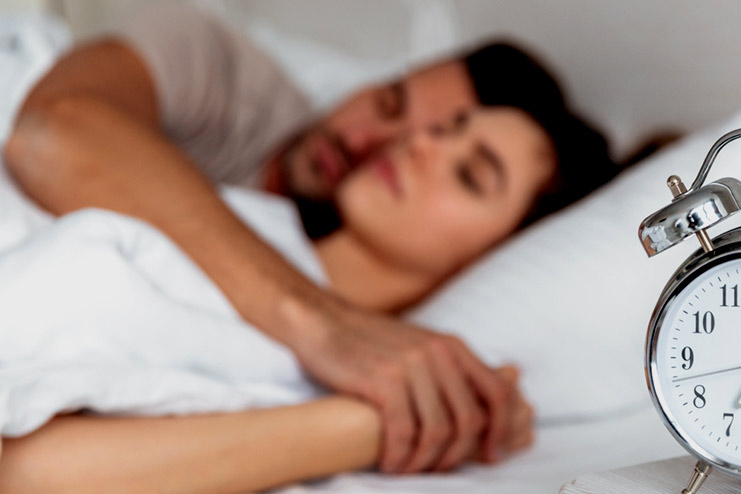

Developing regular and healthy sleep practices is more critical for achieving restorative sleep than simply having a comfy bed. Through deliberate night-time routines and stress reduction strategies, people can establish a setting that promotes calm and, eventually, a more restful sleep. Rituals before bed are an effective way to tell the body when it’s time to go from wakefulness to sleep.
Use relaxing evening routines to help your body go into a restful sleep. Savoring a cup of tea, taking a warm bath, reading an excellent book, or listening to calming music are all activities that let your body know when it’s time to unwind. The efficacy of these signals is increased when regular bedtime rituals are established, which encourages your body to get ready for sleep at the same time every night.
Because sleep rituals are habit-forming, your body can create a link between these relaxing activities and the start of sleep. Regularly implementing these techniques helps you establish a calm and seamless habit before sleep, facilitating a restful and revitalizing sleep.
Stress can be a significant obstacle to getting a good night’s sleep. Putting stress management strategies into practice is essential to establishing a more tranquil sleeping environment. Being stressed out is a natural aspect of being human and can spur you on to complete tasks.
Many of us are dealing with issues that can be emotionally taxing for both adults and children, as well as unpleasant and upsetting. Physical separation is one of the public health measures that might exacerbate feelings of loneliness and isolation as well as stress and worry. It’s critical to deal with any stressors in the hours before sleeping.
To help you sleep better and minimize stress, try these tips:
- Try relaxing your muscles gradually.
- Please take out a journal and begin writing in it.
- Maintain a daily fitness regimen that you enjoy.
- Engage in deep breathing techniques or meditation.
Related Article: What Happens if You Sleep 6 Hours a Day
Addressing Sleep Disorders
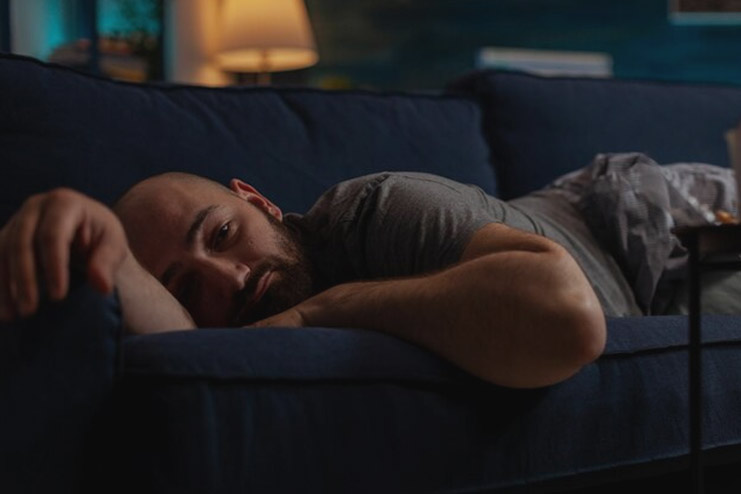

Recognizing the prevalence of sleep disorders is crucial in the quest for appropriate sleep hygiene, as these conditions can substantially impact an individual’s capacity to attain peaceful sleep. It is essential to recognize the warning symptoms of these disorders and know when to seek professional help to maintain overall well-being.
Sleep disorders impact the quantity, quality, and timing of your night-time sleep. Insomnia, restless legs syndrome, narcolepsy, and sleep apnea are examples of common sleep disorders that can affect both your physical and mental health. You can receive treatment to help you obtain the rest you require.
It is critical to seek expert assistance if sleep issues worsen or continue. Effective diagnosis and treatment of sleep disturbances can be achieved by speaking with a healthcare professional or a sleep expert. A physical examination analysis of your test results and symptoms will lead a healthcare provider to identify a sleep problem. Tests such as blood or imaging tests can assist your healthcare practitioner in determining more about the cause of your symptoms. You might be asked to maintain a sleep journal. Your sleeping patterns are documented in a sleep diary. Your healthcare physician can suggest that you see a sleep expert so they can do a sleep study.
In a sleep study, various physical and mental activities are monitored and recorded electronically while the patient is asleep. It is done as a diagnostic procedure for sleep disorders. Healthcare practitioners can assess patterns and anomalies through this thorough examination, perhaps identifying sleep problems. The recorded data makes an extensive evaluation possible, offering insightful information about movements, brain activity, and breathing patterns.
A medical expert evaluates the data gathered from the sleep study after completion, which helps with the precise diagnosis of sleep problems. This non-invasive and educational process is essential to creating personalized treatment regimens for people who want to care for their sleep-related issues.
Conclusion
Improving sleep quality involves more than just establishing a nightly schedule; it also depends on creating the perfect sleeping environment. It is impossible to exaggerate the importance of a comfortable sleeping environment in promoting good sleep hygiene. As we go over the essentials once more, remember that you can take control of your sleep.
Take control of your sleeping environment, make constructive adjustments, and observe the miraculous effects on the quality of your sleep. Making these changes a priority helps you get more sleep at night and lays the groundwork for better overall health.
More Sleep Related Articles:
- 7 Reasons Sleeping on Stomach is Bad
- What Happens If You Sleep Next to Someone 14 Science Backed Benefits
- 11 Unsung Benefits of Sleeping on the Floor
Reference
https://www.ncbi.nlm.nih.gov/pmc/articles/PMC4400203/#:~:text=During%20sleep%20hygiene%20education%2C%20patients,maintain%20a%20regular%20sleep%20schedule).
https://www.betterhealth.vic.gov.au/health/conditionsandtreatments/sleep-hygiene
https://newsinhealth.nih.gov/2021/04/good-sleep-good-health#:~:text=Good%20sleep%20improves%20your%20brain,spent%20in%20bed%2C%20says%20Dr.
https://newsinhealth.nih.gov/2013/04/benefits-slumber#:~:text=%E2%80%9CSleep%20affects%20almost%20every%20tissue,obesity%2C%20heart%20disease%20and%20infections.
https://www.cdc.gov/sleep/about_sleep/sleep_hygiene.html
https://www.sleepfoundation.org/bedroom-environment
https://www.goodhousekeeping.com/health/wellness/advice/a25468/bedroom-sleep-tips/
https://www.eatingwell.com/article/7921597/bedroom-design-tips-for-better-sleep/
https://www.goodhousekeeping.com/home-products/a25695/mattress-buying-guide/
https://www.sutterhealth.org/health/sleep/screens-and-your-sleep-the-impact-of-nighttime-use#:~:text=Studies%20show%20two%20or%20more,other%20type%20of%20relaxing%20activity.
https://www.sleepfoundation.org/bedroom-environment/technology-in-the-bedroom#:~:text=Using%20devices%20tends%20to%20delay,when%20sleeping%20next%20to%20electronics.
https://sleepdoctor.com/sleep-hygiene/bedtime-rituals/#:~:text=Settling%20down%20with%20a%20few,get%20the%20rest%20you%20need.
https://www.unisom.com/en-us/sleep-hub/falling-asleep/ways-to-manage-stress-for-better-sleep
https://my.clevelandclinic.org/health/diseases/11429-sleep-disorders
https://my.clevelandclinic.org/health/diseases/11429-sleep-disorders
https://www.psychiatry.org/patients-families/sleep-disorders/what-are-sleep-disorders#:~:text=There%20are%20several%20different%20types,both%20physical%20and%20emotional%20problems.



























